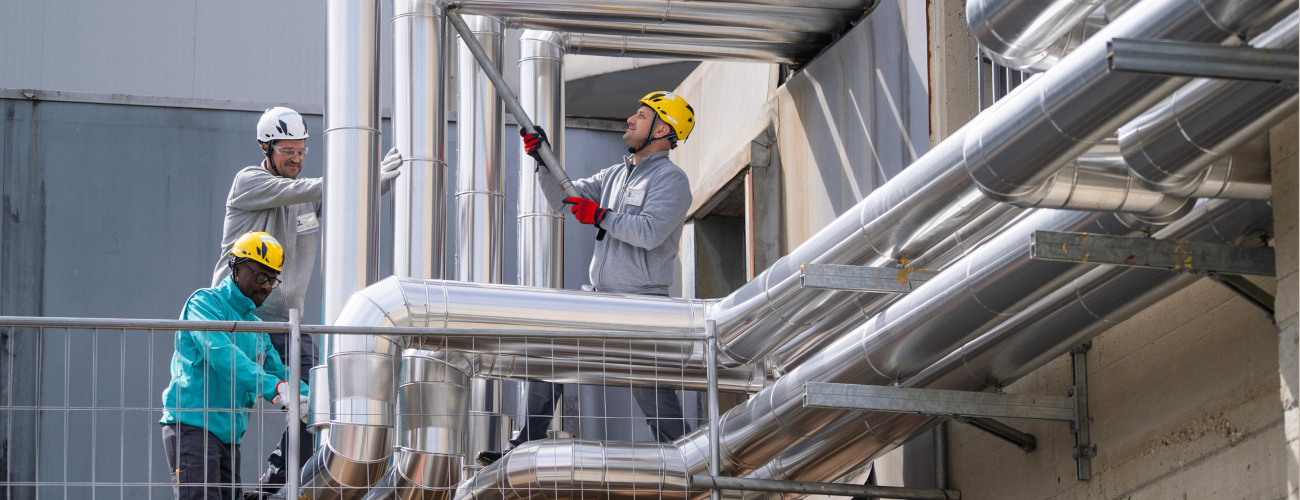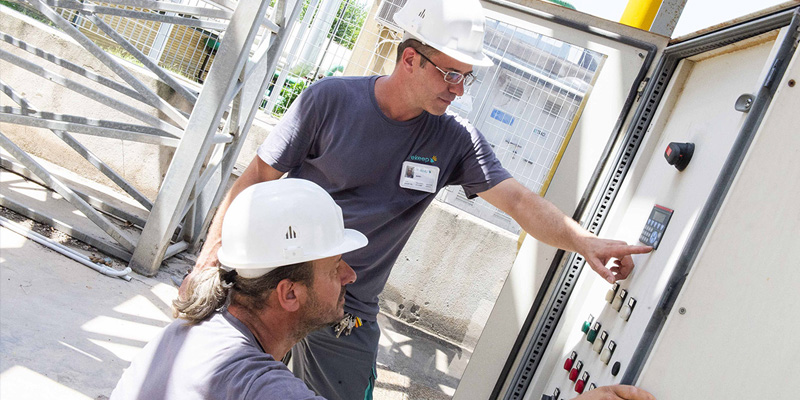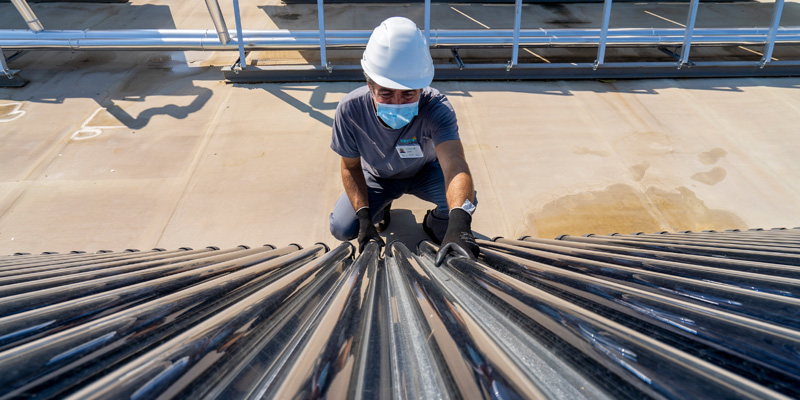
HELIOS, short for Holistic Energy-efficient Living and Integrated Optimization System, aims to develop a Digital Twin prototype to optimize the energy performance of existing buildings. The goal is to evolve the current management approach based on Building Information Modeling (BIM) by integrating Industry 4.0 enabling technologies and IoT sensors to collect and analyze real-time data. The resulting Digital Twin will be a dynamic digital replica of the building, populated with real-world data and connected to the external ecosystem (stakeholders, management systems, suppliers), enabling continuous and predictive resource optimization.
By adopting HELIOS, property managers can monitor the building’s energy behavior, simulate usage scenarios, define corrective or preventive actions. The solution is directed to energy efficiency, improved living comfort, predictive maintenance management and to achieving environmental sustainability goals set by the European “Fit For 55” package, which targets climate neutrality and the energy efficiency of 75% of existing buildings.
Pilot Cases and Benefits
HELIOS will test two pilot cases: Digital Twin for energy monitoring (Case 1) e Simulation and optimization of management processes (Case 2). The shared goal is the digitization and automation of decision-making processes in energy and maintenance management. The first use case focuses on continuous monitoring of energy performance using environmental and infrastructure sensors. The second use case involves user behavior analysis and scenario simulation to improve management efficiency and comfort.
Data post-processing through analytics tools will help identify inefficiencies, anomalies, providing objective support for operational and strategic decisions.
The benefits offered by the HELIOS solution are multiple and aimed at various stakeholders:
- For property managers, the availability of an intelligent and interactive system enables proactive building management, improving operational efficiency and reducing energy and maintenance costs;
- For building users, HELIOS helps enhance indoor environmental quality (thermal comfort, air quality, lighting) through real-time monitoring and the adjustment of environmental parameters;
- For the overall energy system the project promotes a culture of sustainability, allowing for intervention planning based on real and predictive data, in line with European ecological transition goals;
- For public and institutional decision-makers, the replicability and scalability of the solution make it possible to extend its positive impact across large portions of public and private building stock, contributing to the decarbonization of the sector.
The Prototype
The HELIOS project aims to achieve a Technology Readiness Level (TRL) of 6, which corresponds to the demonstration of the technology in a relevant environment—such as a real building or a portion of it—equipped with dynamic and measurable characteristics. The background and know-how of the working group, combined with the planned timeline and budget, make it possible to integrate and test components already available on the market, evolving them within an Industry 4.0 frame

Timeline

The project is structured over 18 months, during which the following phases will be carried out: design of the digital architecture, sensor installation, BIM modeling, construction of the Digital Twin, testing of pilot cases, and final validation of the results.
Funders and Promoters
HELIOS is promoted by a multidisciplinary consortium composed of industrial and academic entities that bring together expertise in engineering, energy management, ICT, sustainability, and digital modeling. The project is fully aligned with the objectives of BI-REX, the national Competence Center for Big Data and enabling technologies of Industry 4.0, which, in its Statute (Art. 2), identifies as its mission the development and promotion of the digitalization of the industrial system through applied research, technology transfer, and advanced training.
In line with the guidelines of Mission 4 “Education and Research” of the National Recovery and Resilience Plan (PNRR), HELIOS fosters innovation and technology transfer also thanks to the participation of the University of Bologna, the project’s scientific partner.
The industrial research and experimental development activities will be carried out in compliance with the provisions of the GBER Regulation (Art. 25). The partnership is committed to providing all necessary information for the implementation and reporting of the project, in accordance with the obligations set out in the PNRR Agreement signed by BI-REX with the Ministry of Enterprises and Made in Italy.



Funded by the European Union - Next Generation EU CUP C49H23000060009
The views and opinions expressed are solely those of the authors and do not necessarily reflect those of the European Union or the European Commission. Neither the European Union nor the European Commission can be held responsible for them.
Rekeep S.p.a.
Sole-shareholder company
via Poli, 4 - 40069 Zola Predosa (BO) - ph. +39 051.3515111
VAT no./Tax code and Bologna Business Registry no. 02402671206
Share Capital Euro 109.149.600,00 fully paid in
Company subject to management and coordination by MSC Società di Partecipazione tra Lavoratori S.p.A.
